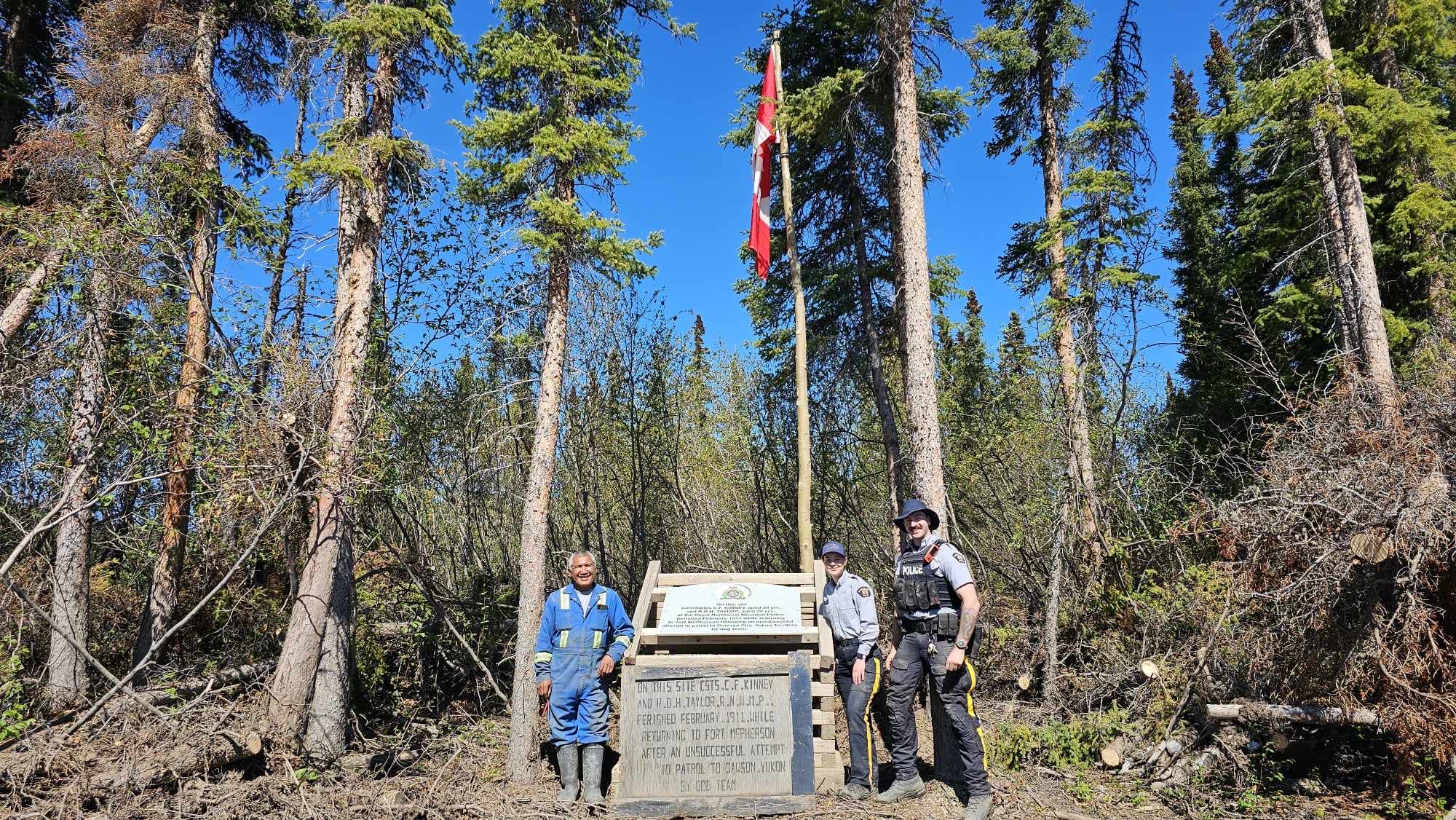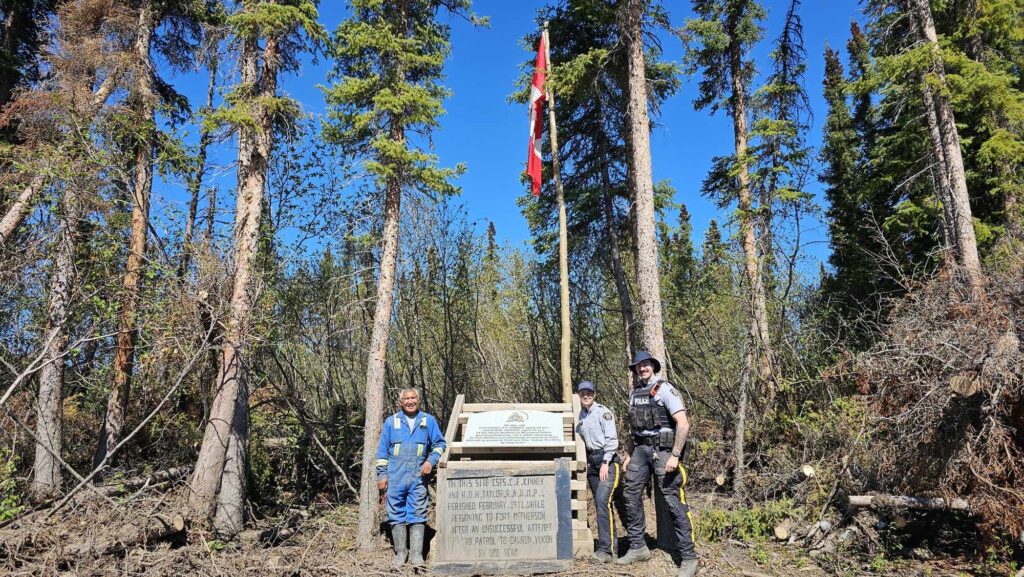
Over 100 years ago, a remote area in the Northwest Territories became the centre point of one of the largest single-event loss of life for on-duty Members of the RCMP, called The Lost Patrol.
Even 114 years after The Lost Patrol, Members in the Fort McPherson RCMP detachment in the Northwest Territories remember these four Fallen Members, whose story of fateful struggle in the bitter winter cold echoes over a century.
The Lost Patrol: Setting Out
Only four short days before Christmas 1910, four Members of the Royal Northwest Mounted Police, the precursor to Canada’s modern RCMP, set out from Fort McPherson in the remote Northwest Territories. The goal of the group, which included Inspector Francis Fitzgerald, Cst. Richard O’Hara Taylor, Cst. George Francis Kinney, and Special Cst. Sam Carter was to complete the annual 800-km trip to Dawson City to deliver mail and dispatches.
Equipped with 15 sled dogs and 30 days of food and supplies, the four Members left Fort McPherson on December 21. Previous trips had taken between 14 to 56 days, weather depending, and the team were expected to arrive in Dawson City by the middle of February.
They never arrived.
The Lost Patrol: What Happened?
The trip started as expected. The four Members successfully completed the first leg of the journey. The Members hired a local Indigenous guide to help them through the Richardson Range, which they navigated successfully.
Once through the mountains, their local guide was dismissed, and the Members continued on their own. Unfortunately, the Member acting as guide had only completed this trip once before – and in the opposite direction – and the four men quickly became lost amidst the howling wind, snow, and biting cold.
It wasn’t until the four Members failed to arrive in Dawson City in late February that another patrol was dispatched to discover the fate of The Lost Patrol. Led by Cpl. William John Dempster along with ex-Cst. Frederick Turner, Cst. Jerry Fyfe, and Charles Stewart, a Métis community member from Fort McPherson, the Members of The Lost Patrol were eventually discovered deceased, and the details of their harrowing journey revealed through the journal entries of Inspector Fitzgerald.
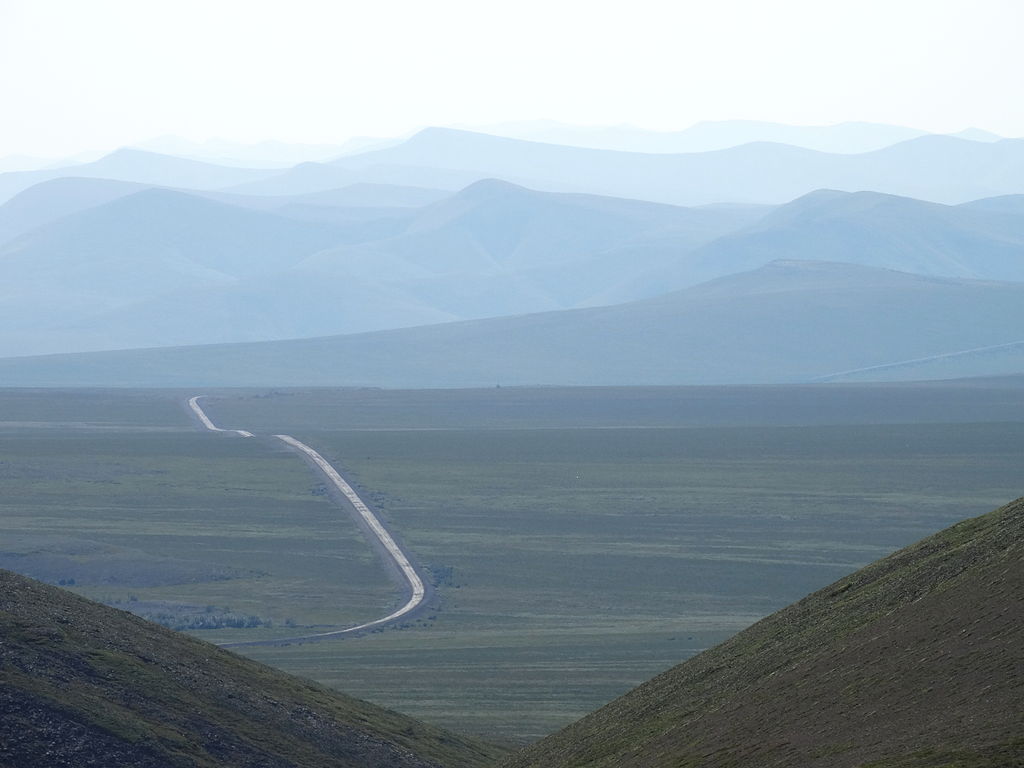
Journal Entries Detail a Fight for Survival Against the Elements
By January 12, the patrol was lost, unable to find the creek that would guide them to Dawson City. Still, they pressed on but by this point they had been battling rugged country and the elements for more than 22 days, and supplies were running low.
Six days passed with no progress. The patrol had travelled up and down several streams and creeks, trying to find the right one but to no avail. With only four days of food left, Inspector Fitzgerald wrote in his journal, “My last hope is gone…”
Realizing the life and death scenario the Members were now in, the four Mounties abandoned their patrol and turned back to Fort McPherson, but this journey proved no less treacherous.
As their dwindling supplies ran out, and facing the grim reality of starvation, the Members resorted to eating the sled dogs, and then the leather straps which had once harnessed the dogs to the sleds.
Unfortunately, with temperatures colder than –40 degrees Celsius, and suffering from starvation and exhaustion, eventually the Members succumbed to the elements and died, only 40 kilometres away from Fort McPherson. First, Csts. Kinney and Taylor perished. Inspector Fitzgerald and Special Constable Carter continued on, but died only a few short steps away from their fellow Members. Today, memorials exist in both sites to pay homage to these men.
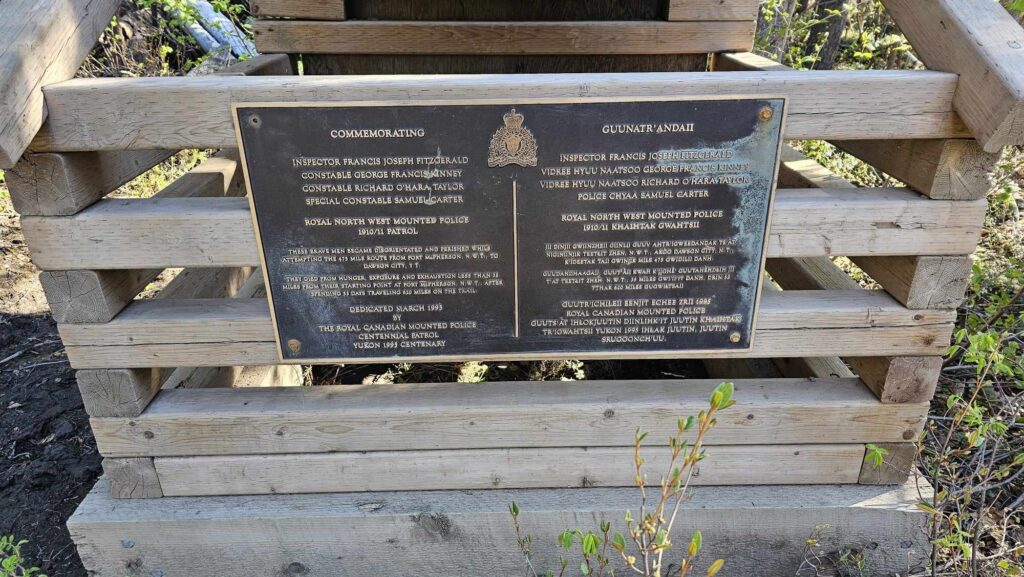
Maintaining Memorials Today for the Members of Tomorrow
Even though the events of The Lost Patrol happened over a century ago, Members of the Fort McPherson RCMP detachment still remember and honour these four brave officers.
Every year, Members in G Division, or the Northwest Territories, look after the memorial sites. Across the Northwest Territories, there are 28 different memorials, and eight in the Fort McPherson area alone.
The desire to remember the Fallen and those who came before is critically important to the Members in the area, including two current officers deployed to Fort McPherson, Cst. Riley Gould and Cst. Melissa Richard.
As Riley says, “I came from a military family and so it’s something you grow up with and it’s no different with the RCMP. It’s part of your history, it’s part of where you come from, and so it has to be a part of where you’re going. If you let those names fade away, how can you carry on that legacy? When people give that sacrifice in the name of something they believe in, it’s something you need to honour.”
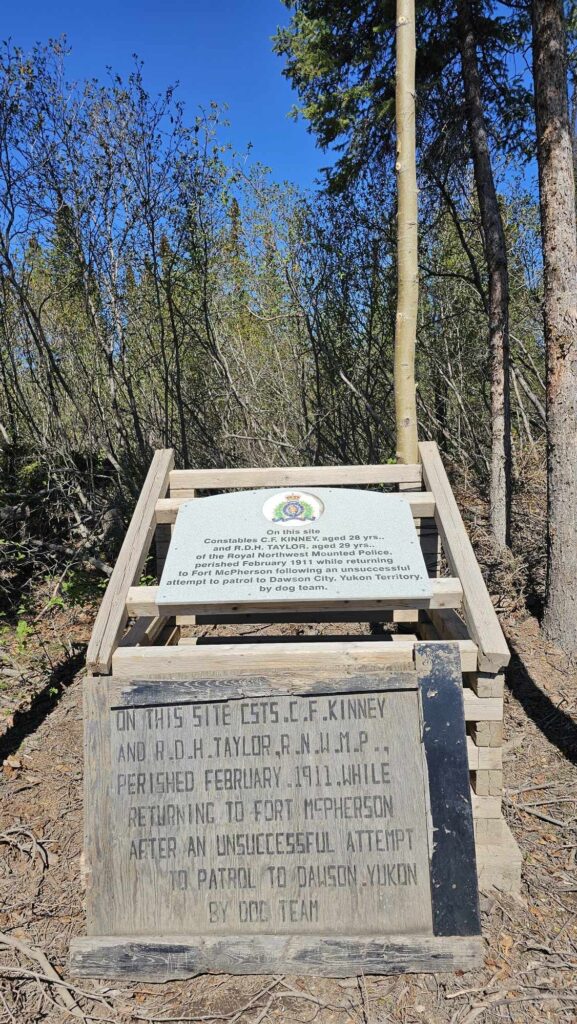
The sentiments were shared by Melissa: “Remembering the history is something you want to take into account because we couldn’t have done it without the people that were here, and if you forget that history, you forget that bond and it’s important to keep that memory alive.”
Local Guides and a Little (ok, a lot of) Elbow Grease
Maintaining these sites isn’t easy, though. For one, finding them can be tricky, and with limited tools and resources on hand, sometimes having a local guide is best. For Riley and Melissa, they relied on local knowledge and some DIY help to spruce up The Lost Patrol memorial in June 2024.
“So many of these folks know the place like it’s the back of their hand,” says Riley. “It’s pretty cool to see the extent of the local knowledge out here. It’s part of their history, all the information about where these sites are and what happened comes from the community.”
Riley continued, “We have some tools kicking around the office – branch cutters, hand saws, that kind of thing. And if that’s all we had, we would have been there all night, but the guide knew what to expect and brought chainsaws.”
Once Riley, Melissa and their guide Lawrence – a local Indigenous man – made it to the area of The Lost Patrol memorial, the first thing they had to clear out was the overgrowth of willows that had claimed the site. Historic levels of flooding in the years earlier had left substantial damage – the flagpole at the memorial had been completely washed away. Breaking out the guide’s chainsaws and other tools, Riley and Melissa were able to clear away the willows, mud, and other overgrowth. They even managed to make a new makeshift flagpole from a big tree, dug into the mud with a new flag tied to the top to mark the site.

“We found part of [the old flagpole] in the mud bent right in half. The flag was stuck buried in the mud and we had to cut it down. We brought it back to the detachment and will keep it here, and installed a new Canadian flag in its place,” Riley explains.
With the work complete for this year, the Members left the memorial in a new, clean, and well-maintained state for future generations of locals and visitors to see and pay their respects.
Serving in the North: Rugged and Rewarding
It’s not just about memorials, rugged landscape, and local knowledge for Members in the North. Serving in the North provides experiences that few other Canadians get. And Riley and Melissa are always keen to talk about it.
“Back in the age of the NWMP those were some hard dudes out there,” says Riley. “They were survivalists. But by no means is it limited to that branding today. Now anyone can work up there, you don’t need that extensive knowledge of camping or bushwhacking. It can be for everyone and can be a learning experience. Fort McPherson is staffed with a lot of folks from Depot and after two years you come out a very well-rounded Member.”
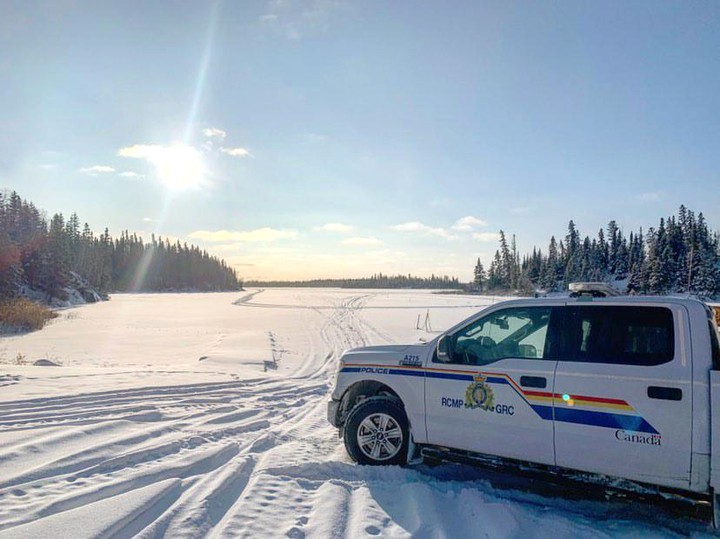
“I love that we’re getting to talk about the North in general and this environment. I think most Canadians forget that these places exist, or know they exist period,” says Melissa. “There’s so much strong Canadian and Indigenous history – the people who live here and have lived here are very real, and I’d encourage people to take the time; to read about it, learn about it, or hear the stories and that local knowledge. It’s like nothing else in the entire world.”
While the events of The Lost Patrol happened over 100 years ago, the legacy of their bravery and drive echoes to today – an echo heard by the Members who serve Fort McPherson and those who call the area home: visitors, Members, and locals alike. Because remembering the Fallen has no expiration date.


